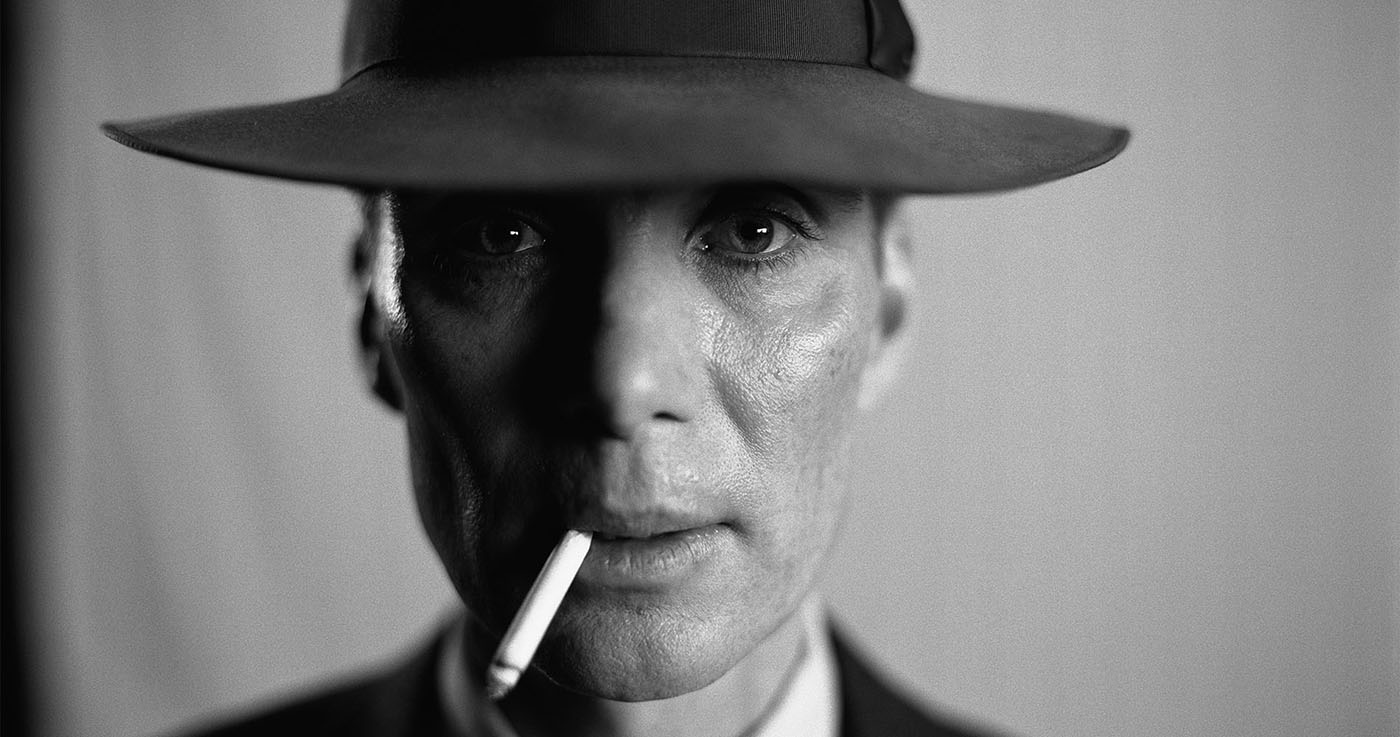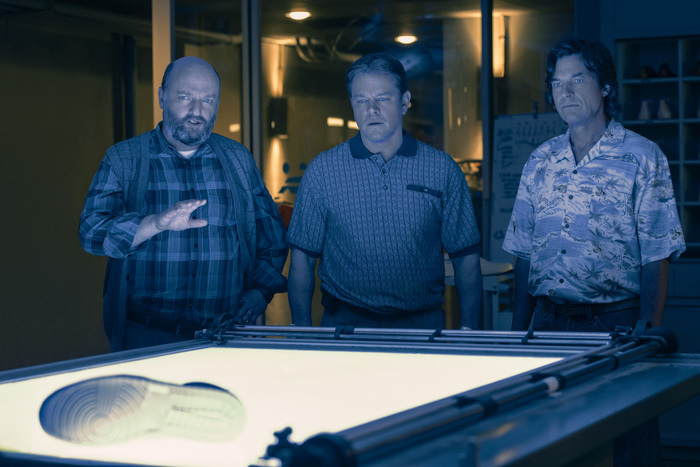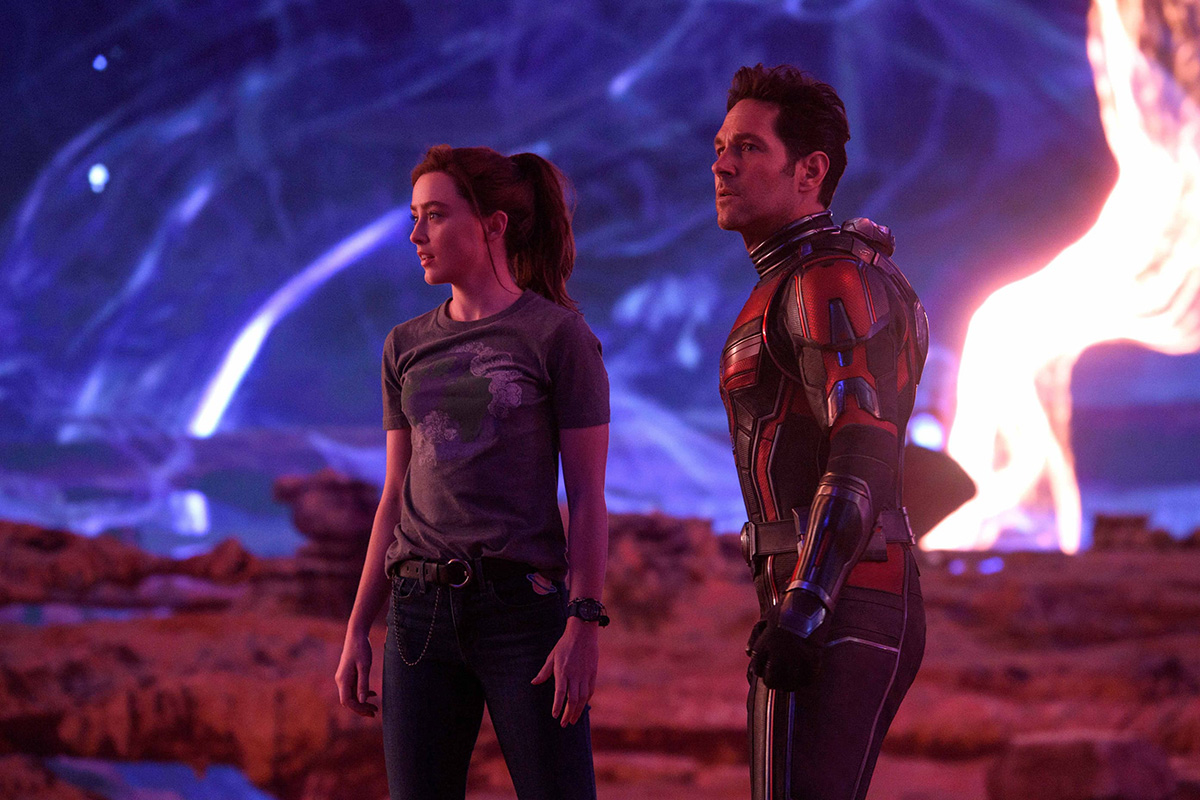Film review: ‘Oppenheimer’ employs unprecedented technical brilliance to redefine biopic genre

Cillian Murphy plays J. Robert Oppenheimer in “Oppenheimer.” Written and directed by Christopher Nolan, the historical biopic premiered July 21. (Courtesy of Universal Pictures)
“Oppenheimer”
Directed by Christopher Nolan
Universal Pictures
July 21

By Natalie Agnew
July 21, 2023 3:26 p.m.
With astounding reinvention, “Oppenheimer” detonates the very form of the biopic.
Sonically shattering silver screens starting Friday, the film written and directed by Christopher Nolan details the tangled legacy of J. Robert Oppenheimer (Cillian Murphy), “the father of the atomic bomb.” Nolan’s 12th feature film revels in his characteristic technical virtuosity while also landing with a desolate, gut-wrenching impact – and the result is nothing short of his best work to date.
The complexity of Oppenheimer’s existence is paralleled by the film’s twisting timelines, separating the movie into three distinct parts: a surrealist scientific biopic, a western thriller following the construction of the first bomb and a political courtroom drama. Interspersed and kinetic, the dueling timelines mimic stunning visuals of the scientific reaction, reconstructing the typical procedural biopic. However, this ambition results in a breakneck-paced, somewhat overstuffed plot, in which a three-hour runtime becomes more apparent following the climax in the third act.
[Related: Film preview: Summer 2023 promises gripping getaways from the sweltering sun]
As is immediately clear from the opening scene, beyond technical pyrotechnics, the screen begins and ends with the eyes of Cillian Murphy. In his sixth time working with Nolan and first in a starring role, the “Peaky Blinders” actor disappears into Oppenheimer’s skin, fully absorbing attention with his restrained yet restless force of a presence. Grounding the film, his performance conveys the thrill of power, horror and psychological turmoil.
Falling victim to his noir influence, Nolan still is not capable of writing a female character beyond a tragic femme fatale caricature. The most egregious example is Oppenheiemer’s lover Jean Tatlock, who, despite Florence Pugh’s compelling portrayal, is but a mere accessory, and her lack of development results in the vacant emotional impact of her loss. Additionally, the extensive supporting cast of A-listers – including the likes of Matt Damon, Emily Blunt, Casey Affleck and Gary Oldman – counteract each other as some character development is sacrificed to maintain plot momentum.
Projecting the film on 70mm, cinematographer Hoyte van Hoytema and Nolan work in tandem to create a metamorphic portrait. In every shot, the camera never strays from centering the protagonist’s face, emphasizing the anchor of psychological examination. Through shifting hues between black and white and foreboding, muted color, Nolan differentiates between the objective and subjective realities, respectively.
The true triumph of the picture is its thunderous sound design in symphony with staggering cuts, constantly ripping the viewer into a shell-shocked unease to match the tumultuous inner psyche of the titular character. For instance, engaged in a dinner debate with Lewis Strauss (Robert Downey Jr.), Oppenheimer is suddenly overwhelmed by a violent cacophony of a crowd, foreshadowing a scene to come. But despite flawlessly executed background design, Nolan occasionally succumbs to his trademark flaw – underwhelming dialogue volume, which detracts from some lines that should wield more significance.
Beyond sound acrobatics, Ludwig Göransson’s score manufactures incessant, sinister tension in even the most benign moment and creates audible separation between the timelines. Heavily incorporating violins, the tone fluctuates from inquisitive romanticism during scientific discovery to incorporation of increasingly percussive ticking and distortion leading up to the pivotal Trinity Test in the climax. The score’s towering grandiosity is a monumental achievement that ascends to the immense heights of the historical moment.
[Related: Film review: ‘Overstuffed’ plot eclipses pitch-perfect performances in ‘Beau is Afraid’]
As one would expect, the film touches brilliance at the testing of the first bomb in Los Alamos, New Mexico, and the immediate aftermath. Subverting expectations, as trembling hands press the red button, there is harrowing silence harmonized by anxious breaths. Initially, there is brightness in the dark as a new world is born from scientific innovation, and then the screen is overtaken by black churning flames. With the ominous quote, “Now I am become death, the destroyer of worlds,” an impeccably timed, explosive sonic blast shakes the screen.
However, following the dramatic euphoria of power in the test’s success, the most emotionally devastating note is struck as Oppenheimer delivers a victory speech in the wake of the bombings of Hiroshima and Nagasaki. Murphy’s eyes shine with dread as he speaks in buzzwords on American nationalism, and the crowd morphs into a nightmarish, ghoulish entity. Editing utterly transcending genre, hallucinations merge with his reality as he hears the bomb and mournful sobs, a woman’s face in front of him begins to peel, and abruptly, the crowd disappears.
By comparison, the final courtroom act, which dissects former United States Atomic Energy Commission chairman Strauss’s cabinet confirmation and attempts to undermine Oppenheimer’s legacy, falls somewhat flat. Downey achieves an impeccable performance in his return to dramatic acting, but it is increasingly difficult to connect to the dialogue-driven political case after witnessing the display of the second act. Its emphasis on legacy mirrors the singular focus of the man himself but appears overly plot-heavy and inconsequential at times. Yet, these pitfalls are overcome by the spectacular closing sequence.
Oppenheimer loses his security clearance and the power he so desperately clung to. In a callback to his conversation with Einstein by the tranquil pond, he recalls his initial fears that the bomb might initiate a never-ending chain reaction that ends the world and the realization that he in fact “already did.” And with that, the booming score heralds the burning flames of total destruction, leaving the audience to reckon with the reality of this statement. Prometheus stole fire from the gods, and Zeus cursed the human race in retaliation. Mirroring this mythos, “Oppenheimer” proved humanity is the ultimate price of greatness.
The invention of the nuclear bomb opened Pandora’s box – there’s no going back.





